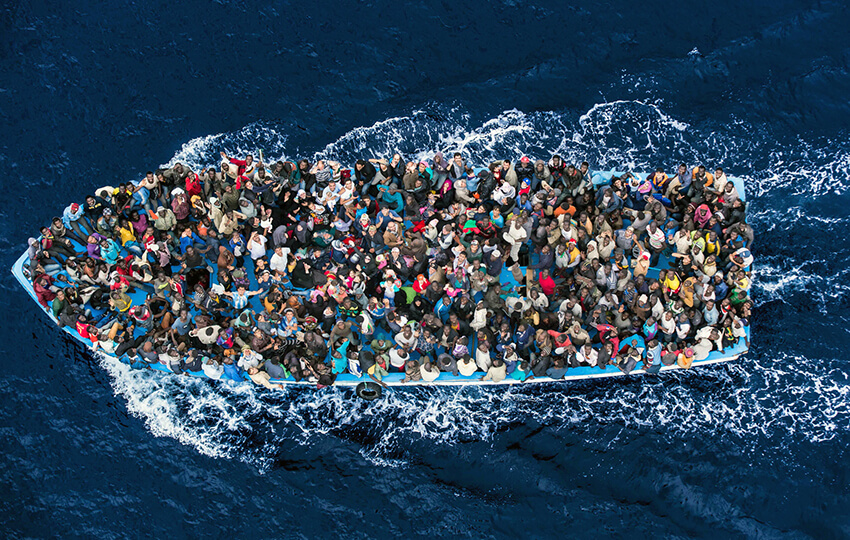Digital health for refugees is increasingly becoming a lifeline for millions of people displaced by conflict, natural disasters, or persecution. Worldwide, more than 100 million individuals are forcibly displaced, and access to proper healthcare is often limited or entirely absent. Traditional healthcare systems struggle to reach these vulnerable populations due to barriers like distance, cost, and lack of medical infrastructure. Digital health technologies are stepping in to address these challenges, providing innovative, accessible, and effective solutions to improve healthcare delivery for refugees around the globe.
Understanding Digital Health
Digital health refers to the use of technology to provide healthcare services, manage health information, and empower individuals to make informed decisions about their health. This includes mobile health apps, telemedicine, electronic health records, wearable devices, and online education tools. For refugees, these technologies are particularly valuable because they overcome many of the limitations of traditional healthcare systems, allowing access to vital services regardless of physical location.
Digital health also goes beyond basic medical consultations. It encompasses preventive care, mental health support, chronic disease management, and health education. By making healthcare more accessible and adaptable, digital health solutions can play a critical role in improving the lives of displaced populations.

The Challenges Refugees Face in Accessing Healthcare
Refugees often encounter multiple obstacles when trying to access healthcare. Understanding these challenges is essential to see why digital health is so transformative.
Language Barriers
Many refugees speak languages that are not common in their host countries. This makes it difficult to communicate with doctors, understand prescriptions, or navigate healthcare systems. Miscommunication can lead to incorrect diagnoses or missed treatments, putting lives at risk.

Lack of Documentation
Refugees often flee their homes without medical records or identification. This lack of documentation complicates the continuity of care, making it harder for healthcare providers to track previous treatments, vaccinations, or chronic conditions.
Limited Access to Healthcare Facilities
Many refugees live in remote areas or overcrowded camps far from hospitals and clinics. Traveling to receive care can be expensive, time-consuming, or even impossible due to safety concerns.
Financial Constraints
Healthcare costs can be prohibitively expensive for refugees who often have limited or no income. Paying for consultations, medications, or diagnostic tests is a significant barrier to receiving adequate care.
Mental Health Struggles
Displacement, trauma, and uncertainty take a severe toll on mental health. Many refugees experience anxiety, depression, or post-traumatic stress disorder (PTSD). Unfortunately, mental health services are often scarce or inaccessible in refugee settings.
Digital health addresses many of these challenges by offering affordable, accessible, and culturally sensitive healthcare solutions that can reach people wherever they are.
How Digital Health is Transforming Refugee Healthcare
Digital health technologies are transforming refugee healthcare in several impactful ways.
Telemedicine and Remote Consultations
Telemedicine allows refugees to connect with healthcare professionals through video calls or messaging services. This eliminates the need to travel long distances and ensures timely access to medical care. Refugees can consult doctors, receive prescriptions, and get follow-up care remotely, making healthcare more convenient and safer.
Mobile Health Applications
Mobile apps designed for refugees provide a wide range of services, including health information, appointment scheduling, medication reminders, and mental health support. Multilingual interfaces make these apps accessible to diverse populations, while features like push notifications help users stay informed about vaccinations, health checkups, and preventive care.
Electronic Health Records
Digital health records enable secure storage and sharing of medical histories. This ensures that refugees can maintain continuity of care even as they move between different regions or countries. Electronic health records also help healthcare providers make informed decisions and provide personalized care, reducing medical errors and improving outcomes.
Mental Health Support
Many refugees face severe emotional and psychological challenges due to displacement, loss, and trauma. Digital platforms provide counseling services, support groups, guided meditation, and stress-management tools. These resources help refugees cope with their experiences and promote mental well-being in situations where in-person mental health support is limited.
Health Education and Awareness
Digital health tools are also instrumental in educating refugees about disease prevention, hygiene, maternal and child health, nutrition, and vaccination. By providing accurate information in multiple languages, these platforms empower refugees to take charge of their health and make informed decisions for themselves and their families.

Real-Life Examples of Digital Health in Action
Telemedicine Programs
Refugee camps in several countries now have access to telemedicine services that allow residents to consult doctors remotely. These programs have reduced the need for physical clinic visits, improved treatment adherence, and made healthcare more accessible in regions where medical facilities are scarce.
Mobile Apps for Refugees
Mobile applications designed specifically for refugees provide essential services such as locating nearby healthcare facilities, tracking vaccinations, and offering multilingual health education. These apps have proven particularly effective in urban areas where refugees may not have established connections with local healthcare providers.
Digital Health Records
Organizations working with displaced populations have implemented electronic health records to maintain comprehensive medical histories. These records can follow refugees across borders, ensuring that vaccinations, chronic condition treatments, and emergency care information are always available.
Online Mental Health Support
Digital platforms offering mental health support, such as online counseling or guided meditation apps, have become a critical resource for refugees. These tools help address trauma, anxiety, and depression, giving displaced individuals access to professional support even in locations without mental health specialists.
The Positive Impacts of Digital Health on Refugee Communities
Digital health initiatives have produced tangible benefits for refugee communities:
- Increased Healthcare Access: Refugees can now reach medical advice and services regardless of location.
- Continuity of Care: Digital records ensure consistent treatment and medical follow-ups.
- Empowerment Through Education: Health information and self-care tools give refugees control over their well-being.
- Cost-Effective Solutions: Digital tools reduce the need for physical infrastructure, saving resources for both healthcare providers and refugees.
- Enhanced Mental Health Support: Online counseling and support communities help refugees cope with trauma and stress.
Overall, digital health fosters healthier, more resilient refugee populations and strengthens the overall healthcare system for displaced communities.
Overcoming Challenges in Digital Health Implementation
While digital health holds great promise, several challenges must be addressed to maximize its impact.
Digital Literacy
Not all refugees are familiar with smartphones, apps, or online platforms. Training programs are essential to ensure that individuals can effectively use digital health tools.
Internet Connectivity
Reliable internet access is a prerequisite for most digital health services. In many refugee camps or remote areas, connectivity is limited, making it difficult for residents to access online healthcare resources.
Data Privacy and Security
Digital health solutions must prioritize the confidentiality and security of personal health information. Refugees may be particularly vulnerable to data breaches, so robust security measures are critical.
Cultural and Language Sensitivity
Health interventions must be culturally appropriate and linguistically accessible to be effective. Platforms that fail to consider these factors may struggle to engage refugee populations or provide accurate guidance.

The Future of Digital Health for Refugees
The future of digital health for refugees is bright, with ongoing innovations aimed at improving healthcare access, quality, and efficiency.
Integration with National Healthcare Systems
Efforts are underway to integrate digital health platforms with national healthcare systems. This ensures that refugees receive the same quality of care as the local population and can access medical services seamlessly.
Artificial Intelligence and Machine Learning
AI and machine learning are being explored to predict health trends, identify high-risk patients, and provide personalized care recommendations for refugees. These technologies have the potential to improve healthcare outcomes and resource allocation.
Blockchain for Health Records
Blockchain technology can provide secure, immutable solutions for managing refugees’ health data. This ensures that medical histories remain intact, even if refugees move across countries or regions.
Expansion of Telemedicine and Mobile Services
Telemedicine and mobile health applications will continue to expand, reaching more refugees in remote or underserved locations. As technology becomes more affordable and accessible, these services will play an increasingly central role in refugee healthcare.
Conclusion
Digital health for refugees is transforming the way displaced populations access and receive healthcare. By overcoming traditional barriers such as distance, language, cost, and lack of medical infrastructure, digital health technologies are ensuring that millions of refugees worldwide receive the care they need.
From telemedicine consultations and mobile health applications to mental health support and digital records, these innovations are fostering healthier, more empowered, and resilient communities. While challenges like connectivity, digital literacy, and data privacy remain, ongoing advancements and global collaboration are paving the way for a future where healthcare is accessible to all, regardless of displacement or circumstance.
Digital health is not just a temporary solution—it is a sustainable and scalable approach that can fundamentally improve the lives of refugees around the world, providing hope, dignity, and health in the most challenging of circumstances.
Do follow UAE Stories on Instagram
Read Next – Dubai Comedy Festival 2025: Andrew Schulz, Zakir Khan and Joanne McNally join Mo Amer














